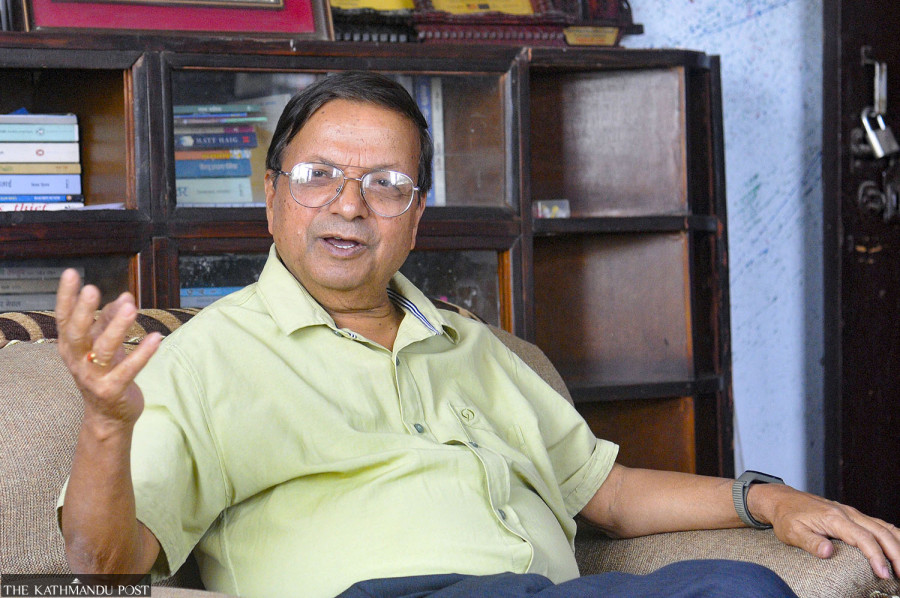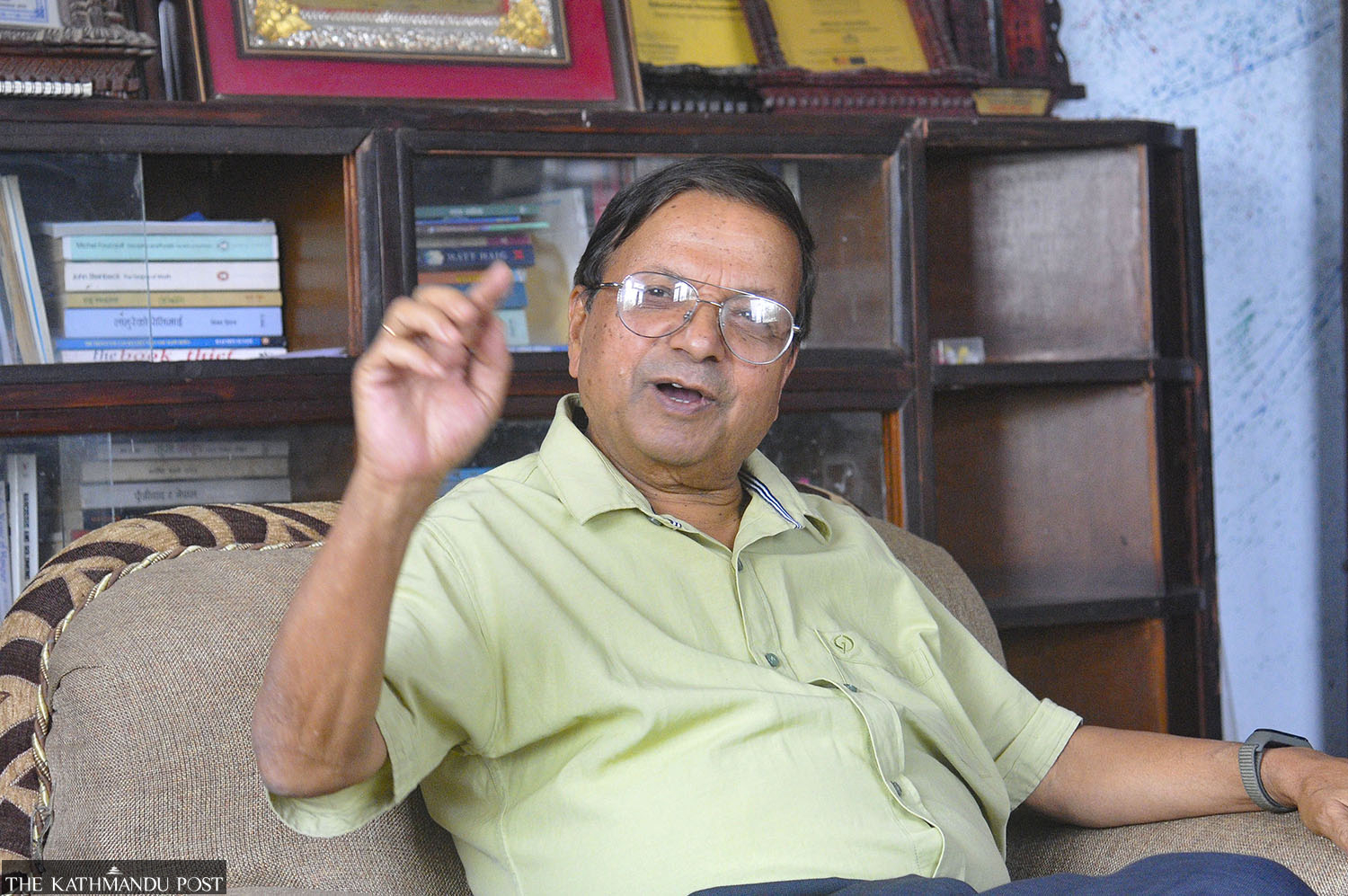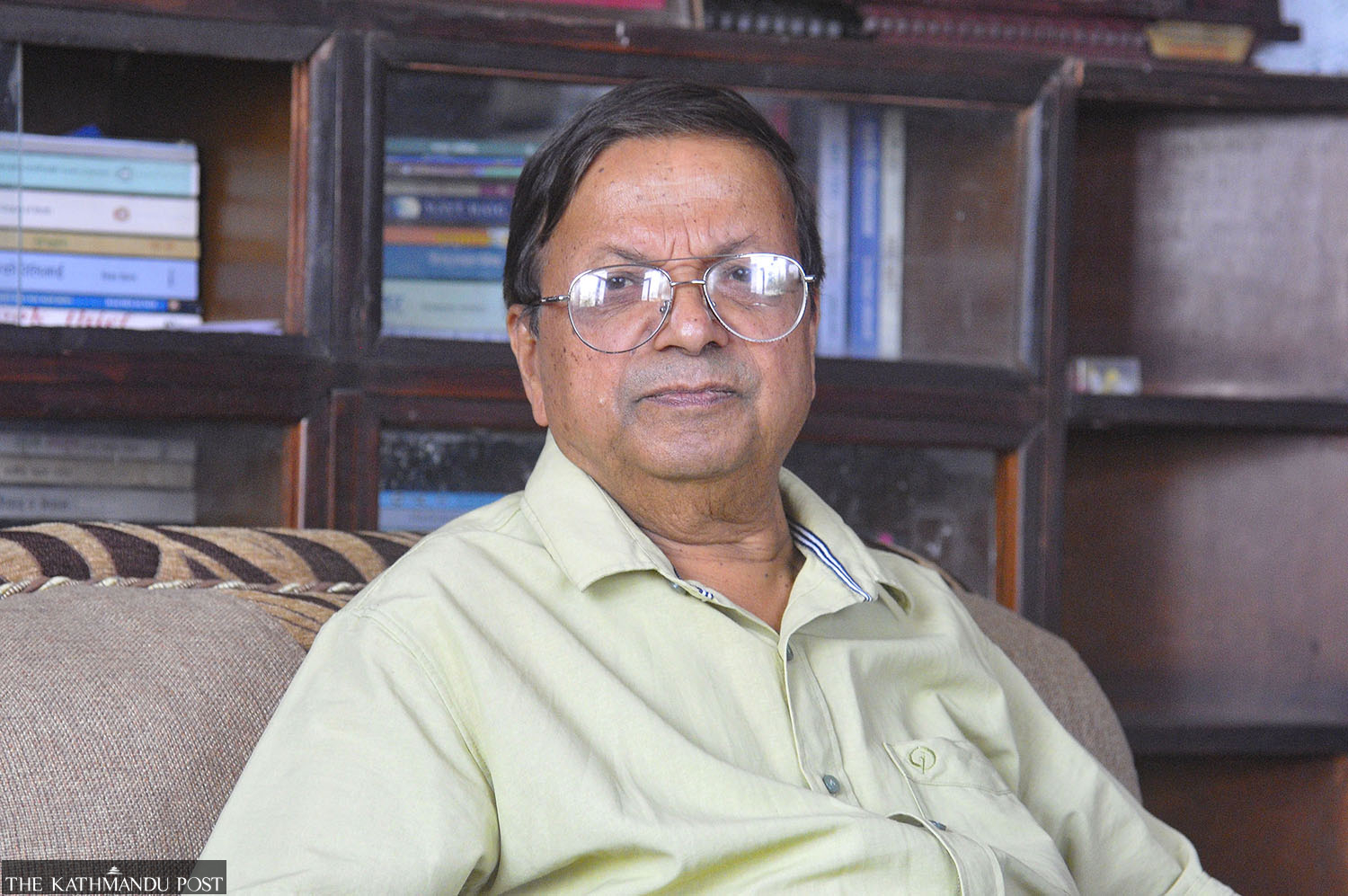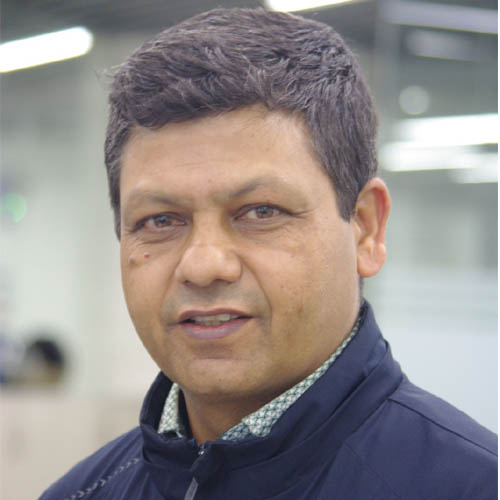Interviews
Years of broken promises pushed teachers over the edge
Many local units are doing a very good job in terms of improving the quality of school education under their jurisdictions.
Thira Lal Bhusal
Thousands of community school teachers from across the country have been protesting in Kathmandu for the past four weeks but a solution to their problems still seems elusive. Dhananjaya Sharma, who was head teacher for two decades at the Gyanodaya School at Bafal, considered an exemplary community school, is of late involved in training teachers and other stakeholders for the improvement of community schools. The Post’s Thira Lal Bhusal sat down with Sharma for insights on Nepal’s community school education and the demands of the agitating teachers.
How do you observe the ongoing teachers’ protest?
Teachers have been protesting with these demands for years. They have not added any new demand. They held protests in 2075 BS and the government signed an agreement with them but the deals were not implemented. They took to the streets in 2078 BS and the then government again reached an agreement, which was not implemented. They again took to the street in 2080 BS and went back to the schools after the government signed yet another agreement promising to address their demands through a new education Act. But, again, it didn’t happen. Now, the teachers have descended on Kathmandu from across the country and have been demonstrating for the past four weeks. This time, the teachers seem to be angrier with the government as they have been betrayed time and again.
How valid are the teachers’ demands?
Some of their demands are quite valid. Some are against the constitution and difficult to address. But this situation developed because of the ad-hoc decisions and tendency of deferring the problems. No government bothered about finding a long-term solution. Some ministers even pledged to address demands that went against the constitution and are not financially viable. For instance, teachers demanded new positions for Early Childhood Development (ECD) teachers and for these teachers to be given permanent status through a specific process but the government has not created such posts. It is the finance ministry that creates new positions. The government has not created any positions for the past 29 years. But it recruited teachers through various alternative routes. The government hired PCF (per-capita funding) teachers, ECD teachers and relief quota teachers to fulfill the teachers’ need in schools.
Teachers under these categories were selected based on personal contacts and not through a competitive system. This trend of recruiting teachers through various channels was rampant for a decade from 2052-2062 BS. The need for the teachers was fulfilled on an ad-hoc basis and their terms were repeatedly extended. Now the government can’t fire the ECD, PCF and relief quota teachers, who are around 80,000 combined, and they are now organised. I believe most teachers protesting at Baneshwar are from these categories. Teachers might be held responsible for not providing quality education in their respective schools. But the current situation is the result of successive governments working on an ad-hoc basis.
The teachers have also demanded automatic permanent status to all teachers hired through different routes. Can this be justified?
This is not justified. Competent teachers can’t be recruited in this way. If they are given permanent status, eligible people in the society will stay jobless while incompetent ones will be recruited. Certain seats can be allocated to be filled through competition among them. But recruiting teachers only through internal competition is unacceptable. The profession will be attractive only after inviting more people.
It seems addressing the teachers’ demand is challenging even if the government wants to do so.
Yes, it is very challenging from financial and other aspects. They insist they won’t work under local governments. The constitution has given the entire authority about the education up to the secondary level to the local units. The statute has entrusted the local governments with the responsibilities such as recruiting, transferring and evaluating teachers. So their stance is unconstitutional.
Will our school education improve under local governments?
As I travel to various parts of the country in the course of providing training to schools, guardians and other stakeholders, I find many local units doing a very good job in terms of improving education in their areas. Kathmandu Metropolitan City is an example. I recently observed such improvements and good initiatives taken by local units in Rupandehi, Dang and Makawanpur districts. So many local units have significantly increased investments on education.
But teachers complain that local authorities have transferred or given other hassles based on political biases. It is true in certain local units. It happened also because we have practiced this federal system only for a few years. We have to reform the system by doing away with anomalies and keep correcting the mistakes. In general, local units have been doing good in terms of improving the quality of education. I believe they will do better over time when the elected representatives, staff working in local governments, teachers and other stakeholders gain experience under this federal system.

Aren’t teachers also to blame for this conflict as they are also affiliated to political parties and involved in political activism instead of focusing on their academic duties?
Certainly. The teachers’ professional organisations work as sister wings of political parties. This problem will automatically be resolved once the teachers detach themselves from the parties. This is easier said than done though. Teachers’ organisations and political parties have been closely connected since the time when political parties were banned during the party-less autocratic system, much before 1990. They can’t easily be dissociated from the parties. They will be emotionally attached even if they sever their affiliation legally. It takes time. Teachers openly help certain parties win elections. Politicians mobilise teachers during elections as they enjoy influence in their areas.
What is your view on the timing of this agitation?
It was not the wrong time. They wanted to use the gap between the end of an academic session and beginning of a new one. They expected the government would endorse the School Education Bill from Parliament, which was in session at the time. They descended on Kathmandu only after carrying out protests in different forms such as rallies and sit-in in their respective districts, for 15 days. But the government didn’t listen. The winter session of Parliament was prorogued. Then teachers demanded that the government bring the law through ordinance. But it wasn’t practically possible. Hundreds of amendments have been registered in the bill and lawmakers in a House committee have been rigorously working on that. It takes time to finalise the bill and endorse it through parliamentary procedures. So the teachers’ insistence to enact the law overnight is impractical. The government should have brought the law years ago. But the teachers’ rigid stance is impractical too.
Do you think the quality of education provided by the community schools will improve if the teachers’ demands are fulfilled?
Improving the overall quality of the country’s education requires reforms in community schools as around 80 percent of students in the country study in such schools. But there are reasons behind the community schools’ failure in delivering expected results. For instance, they lack teachers for major subjects such as maths, science and english.
After 1990, permission to run schools were given randomly based on personal connections. They were not based on any mapping or zoning of schools. There are some schools where only a few or no students are enrolled. Some schools have a large number of students but lack teachers while in others there are more teachers than students. The government brought a policy of merging schools and adjusting teachers’ posts based on the teachers-students ratio. But the authorities failed to implement it.
They couldn’t even transfer teachers where they are needed. The role of teachers is most crucial. Quality of education can improve only after the teachers become accountable to their students and feel proud of their profession. The role of those who actually teach students in the classroom is the most important in maintaining the quality of education. But the role of the head teacher is even more decisive.
Another reason for the degrading quality of community schools is the government’s failure to recruit new teachers through the Education Service Commission from 2052 to 2062 BS. Teachers were hired rather based on personal contacts and favouritism through other alternatives under other schemes such as ECD, PCF and relief quotas. The Education Service Commission should be strengthened like the Public Service Commission to attract competent people to teaching. To make the profession attractive, the salaries and perks must be on par with civil servants.
You were one of the teachers who developed the Gyanodaya School as a model. How did you do it?
There should be good teamwork between three sides—teachers, managerial team and guardians—to transform a school. We first strengthened coordination with the guardians to create a better environment for study. We won their trust. Second, we motivated the teachers to achieve the best results. We made teachers answerable for the students’ performance and changed their role based on their performance. We started a system of result analysis. We held rigorous interactions with subject teachers about the results of each student, then consulted the parents.
The school had been able to pass around 36 percent of its students in the School Leaving Certificate (SLC) examinations. I became head teacher in 2051 BS. Next year, 100 percent of students passed the SLC. But it was not the result of our efforts made in that particular year. We had initiated a pre-primary class around 10 years before that. When the same batch appeared in the SLC examinations, they produced excellent results. From that, we learnt that we have to make maximum efforts and investments in the foundation period such as the pre-primary and primary levels. After that the school produced excellent results. I urge school managements, teachers, guardians and communities to invest the most in pre-primary and primary education, which are the foundation. But the general practice in Nepal is the opposite. We tend to put maximum efforts and investments particularly during the ninth or tenth grades.

How can the best practices such as those followed by Gyanodaya be replicated in other community schools?
Our constitution has promised free education up to secondary level. Successive education ministers have issued circulars to community schools not to charge any fee for students. But such schools should be allowed to charge nominal fees of parents so that they can hire teachers for vacant positions, maintain proper infrastructure and hygiene, among other things. Exemplary community schools such as Gyanodaya and Bishwa Niketan still charge nominal fees.
There are around 400 community schools across the country that are doing excellent work in providing quality education. They have charged a nominal fee and people are happy to pay. Those who can’t afford even that should get scholarships. If a community school improves, that has a positive impact on other schools as well. For instance, when Gyanodaya made progress, other community schools in the area also improved. Teachers from several districts visited the Gyanodaya and many of them replicated our practices in their schools. The government and municipalities need to introduce policies to encourage schools to learn best practices from exemplary institutions.
Political parties and other influential groups fight to capture the school management committees. Don’t you think politicisation of school management has also degraded school education?
The situation was very bad for around two decades until 2017 as the country couldn’t hold local elections. Having no other influential positions, local leaders eyed the key positions in school management committees. Now the situation is different. Most local politicians are either elected for local or provincial seats or engaged in other political positions. There is competition and rivalry but the situation is not that bad.




 21.12°C Kathmandu
21.12°C Kathmandu











.jpg&w=300&height=200)

